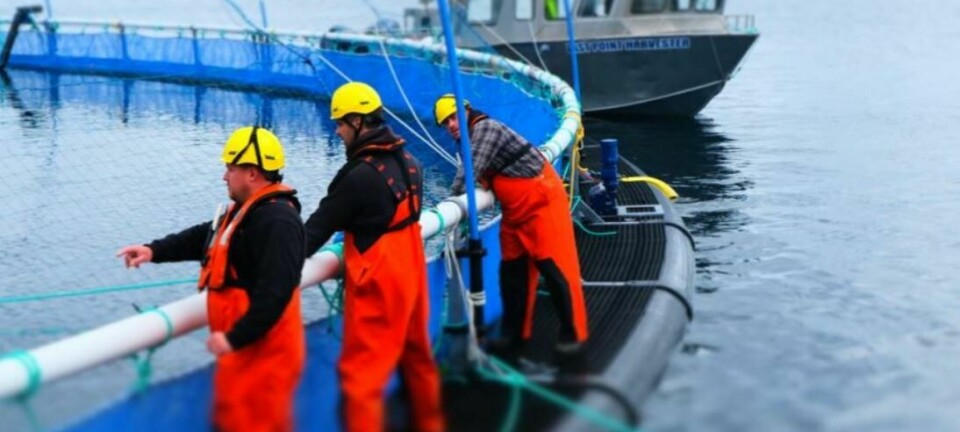Scots return welcomed
Wathne was speaking to Fish Farming Expert after a conference at Aqua Nor this morning in which a new scheme to try and encourage the commercial production of “novel oils” for fish feeds was launched.
“I hope today’s announcement makes some of them regret leaving,” he reflected, “but they’d be welcome back.”
The launch, which was presented by Wathne, alongside Alf-Helge Aarskog and Jorge Fernandez, aims to create the supply 25,000-200,000 tonnes of novel oils – from sources “such as micro algae and yeast” – annually for a minimum of two years.
The members of GSI, who held what Wathne describes as a “beauty contest” for companies engaged in alternative omega-3 production last year, are hoping that the announcement will inspire numerous companies to further investigate omega-3 production.
“It was very inspiring and there were lots of good start-up ideas,” Wathne reflected, “but if you were to ask a company for even 50 kilos of these oils for a feed trial at the moment, it’s hard to find.”
However, despite the fanfare, it transpires that GSI are unable to put any figure of what funding might be available to any successful applicants for the tender, which is open until 31 October. It will be up to the individual feed companies to decide which companies to back and how much money they will invest in the chosen businesses.
Wathne also revealed that today’s event was the first that Ewos’ new owner, Cargill, had heard of GSI.
“They knew nothing about it and it wasn’t part of the negotiations,” he explained.
Cargill’s Joe Stone, who was present at the event, said the initiative showed “tremendous courage” but also asked “what’s next?” on the agenda – a clear sign of the ambitious nature of “one of the world’s largest privately-owned companies”. It is also clear that Wathne is enthused by the Cargill deal.
“It’s purely an opportunity for us,” he observed, “and the world now opens up for multi-species food production.”
And, although Ewos’s only salmon producing branch – Nova Austral in Chile – was not included in the Cargill takeover, Wathne says Cargill are not writing off the possibility of investing directly in salmon production in the future.
“As Serena Lin said yesterday,” Wathne explained, “’now we have a chance to do feed first and then we can think about it’”.






















































